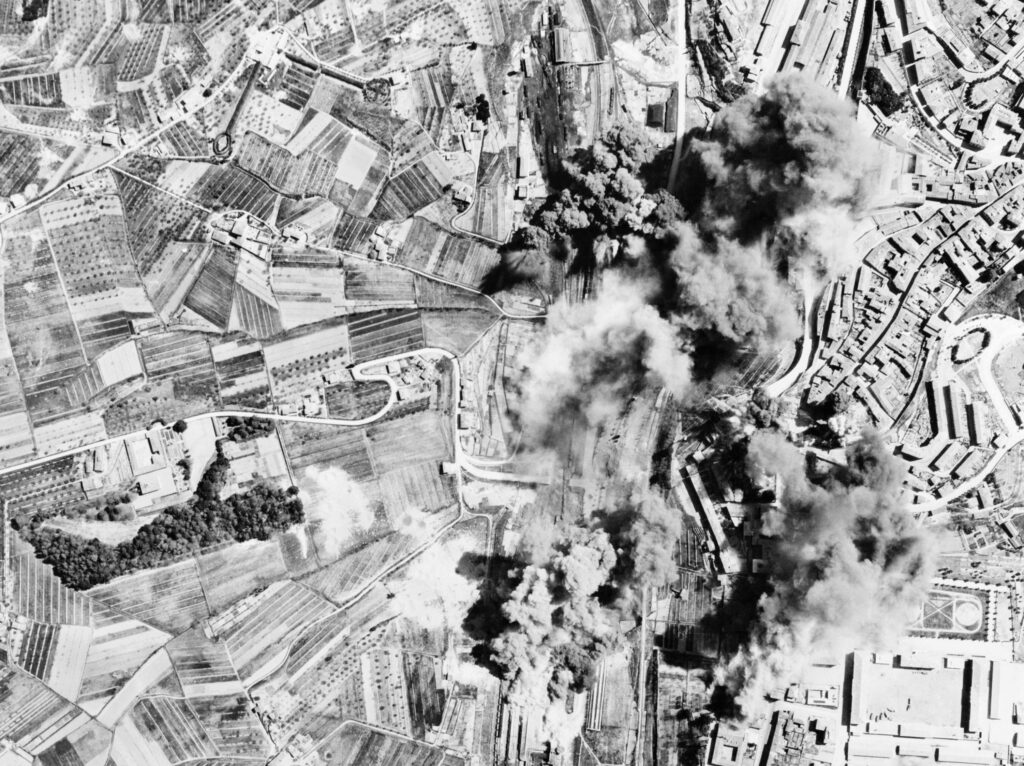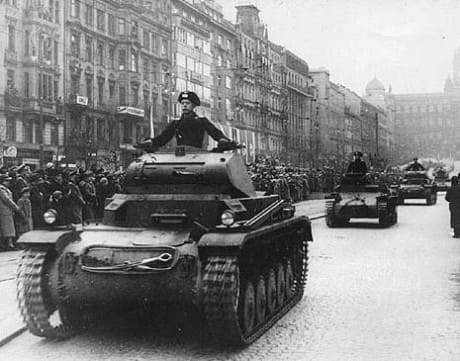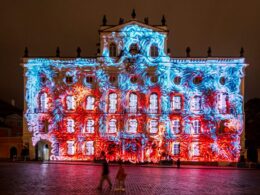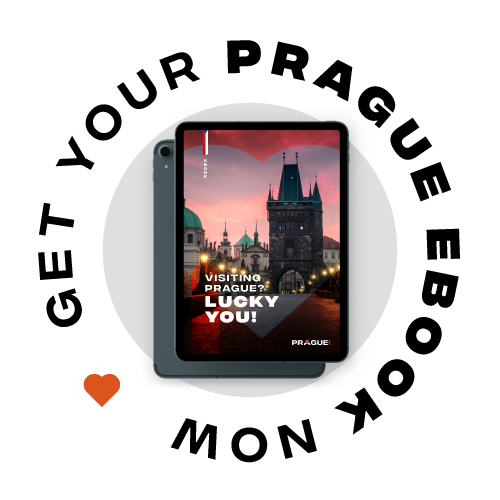Table of contents Show
Whilst it’s safe to state that the Prague bombing took place multiple times in World War Two, the city did not suffer severe destruction like many other major cities.
When measured in human lives lost, the most tragic Prague WW2 bombing occurred on February 14, 1945, a tragic but unsuccessful Prague bombing. This was the last day of World War II for the Czech Republic.
The US pilots claimed they made a navigational error and that it coincided with a large bombing of Dresden, which was taking place at the exact same moment, some 120 kilometers north of Prague.
Even now, seventy-eight years down the line, it is unclear if the Prague WW2 bombing was accidental due to poor weather and the similarity between Prague and Dresden, as seen from the skies, or if it was a deliberate attempt to destroy both cities.
Did Prague Get Bombed in WW2?
During World War II, Prague was mostly not a target; however, there were attacks not intended for Prague but rather for other cities. All the other Prague bombings were relatively minor.
1945 Prague Bombing in WW2

This Prague bombing was the most significant. The American Air Force unleashed around 152 tons of explosives over Prague. Vinohrady,Vyšehrad, Nusle, Vršovice ,Karlovo náměstí, Zlíchov, and Pankrác were all hit by bombs. A total of 701 persons were killed, and 1,184 were injured as a direct result of the explosion.
However, the three bombing groups responsible for the attack were unable to reach their intended objective of Dresden because their planes were disoriented en route. They saw a city on top of a river through a break in the clouds, assumed it was Dresden, and proceeded to bomb Prague, approximately 75 miles from their target.
Although the bombing was fruitless, several homes and historical landmarks were severely damaged or completely destroyed. As an added tragedy, no military was among the bombing’s innocent victims.
British RAF Bombing in Prague
Bombers used real bombs in several other air raids. The British Royal Air Force (RAF) launched four firebombs on Holešovice’s power plant on the 5th of October 1941, and two unknown aircraft dropped more bombs on the same facility on the 14th of November 1944. However, neither attack was particularly damaging. There was a death toll from fragments, although the numbers are unknown.
Palm Sunday Attack
Over 650 aircraft in 12 waves launched from an Italian base. They attacked the KD factory in Prague that produced automobiles for the German forces, as well as the Kbely, Letany, and akovice military airfields. At least 235 people were killed, and 417 were injured, and 90 structures were completely demolished, and 1,360 were severely damaged.
Why Prague was not bombed during WW2
In comparison to other European towns, Prague was relatively spared from bombing throughout World War Two. The range of aircraft was insufficient to reach Prague, as the majority of Allied bombing targets were located in Germany.
Over 90,000 Jews called Bohemia and Moravia home in 1941. A total of little over 14,000 people made it through the conflict unscathed. The yellow star of identification was mandated for Jews in 1941.
The Germans tore down synagogues and Jewish cemeteries across Sudetenland. Still, they left Prague alone because they intended to establish a Jewish Museum there in Prague with the looted belongings of Jews who were packed onto overcrowded freight wagons and transferred to concentration camps.
Head to Prague and Witness The Aftermath of WW2
Discover the fascinating history of World War II in Prague and Operation Anthropoid with this small group walking tour. Walk through the streets of Prague, where you will witness the scars of WWII that still remain on the walls of The Old Town. Explore the underground of a 12th-century palace located in the heart of Old Town and see a private collection of World War Two artifacts and memorabilia. Visit the crypt of Saints Cyril and Methodius Cathedral, and learn about the heroic Operation Anthropoid – a special resistance mission designed to eliminate SS Obergruppenführer Reinhard Heydrich, one of the most feared figures of the Nazi regime. Hear about the brave citizens of Prague who faced the Nazi regime and rose up to become silent heroes.
Highlights
- Embark on a fascinating journey through time as you explore the medieval underground cellars of the 12th-century palace U Kunstat.
- Visit the crypt of Operation Anthropoid beneath St Cyril and Methodius Cathedral, where historical events unfolded during World War II.
- Walk the streets of Prague, comparing the landmarks you see to archival pictures, providing a unique perspective on the city’s history.
- Discover a private collection of WWII artifacts and memorabilia, offering a tangible connection to the past.
- Listen to breathtaking stories about Operation Anthropoid and the Prague Uprising, gaining insight into the bravery and resilience of those involved.
Included
- Expert guide who will provide in-depth knowledge and commentary throughout the tour.
- Entry to the Bomb Shelter located in the medieval underground cellars of the palace U Kunštátů, revealing hidden historical secrets.
- Public transportation ticket for convenient and efficient travel between tour locations.
- Access to a private collection of WWII artifacts and memorabilia, offering a personal glimpse into the era.
- Visit to the Operation Anthropoid crypt beneath Saint Cyril and Methodius Cathedral, a significant site of historical importance.
- Small group tour, ensuring an intimate and immersive experience.
Compared to other European capitals, the Prague bombing had little effect on it. The historical capital of Czech fared well throughout World War Two.Therefore many of its historical landmarks are still standing as before the fighting. Still, the battle left its mark and significantly altered the city’s appearance.
Visit Prague as you see the landmarks that are significant to this chapter in the nation’s past.We’ve got you covered if you’re looking for a place to stay in Prague.





